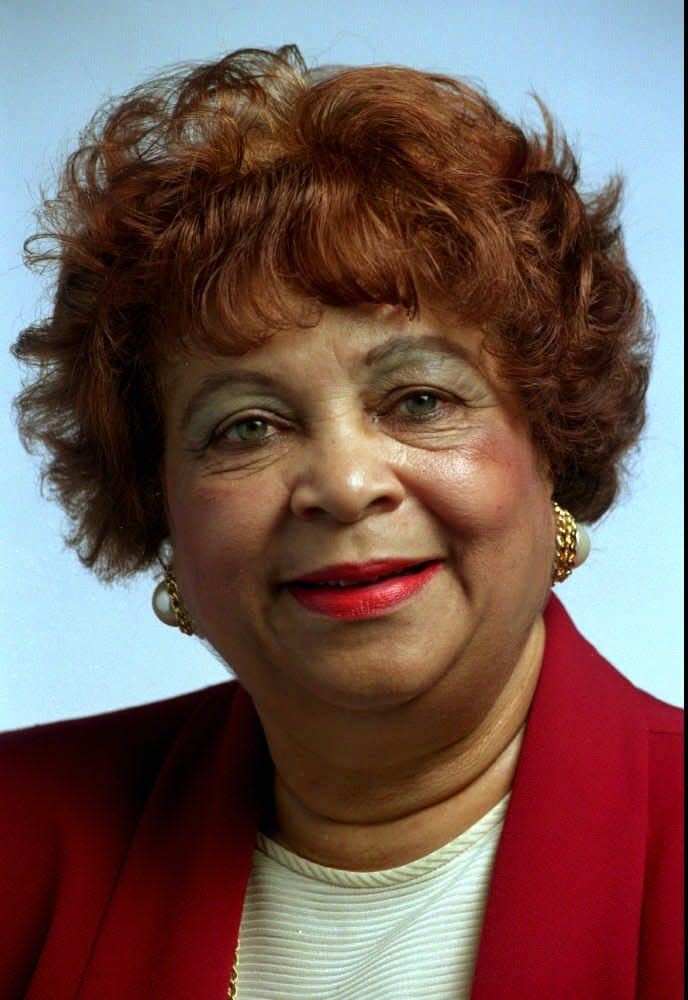Trailblazing Austin Judge Harriet Murphy, friend of MLK and Thurgood Marshall, has died
Judge Harriet Mitchell Murphy, the first Black woman permanently appointed to a judgeship in Texas, has died. Her death was confirmed in a brief statement by the University of Texas School of Law, where she graduated in 1969, the only African American in her class.
"Simply a legend," said Pflugerville City Council Member Rudy Metayer, "and someone who served others in all that she did."

Murphy sat as judge in Austin for 20 years. She was a friend of U.S. Supreme Court Justice Thurgood Marshall, and she once earned an audience with author, educator and civil rights activist W.E.B. Du Bois.
According to the 1940 census, Murphy was born in 1929, but at age 14, she self-reported the year as 1927 at the Georgia State Office of Vital Records. "I picked the age I wanted to be, 16, the age of the 'popular' girls was running around with in those days," she wrote in her memoir. She stuck with the older age most of her life.
A native of Georgia, Murphy pursued social justice her entire life. She faced down the Ku Klux Klan on her own street during the Jim Crow era. During the 1940s, she attended Atlanta's Booker T. Washington High School with Martin Luther King Jr., who was two years her junior.
“We always called him M.L.,” Murphy told the American-Statesman in 2020. “He was a very serious person. I don’t remember seeing him at any of the dances that I went to. He was so concerned with what he believed in and how he could get that out to the world.”
King contributed an essay, “The Negro and the Constitution,” to their high school’s 1944 yearbook, which Murphy preserved.
More: A generation of Black and Hispanic civil rights pioneers left Austin a better place
Murphy's memoir, "There All Honor Lies," was published in 2018.
“It was M.L.’s activism that made me question for the first time my own social standing and the cultural structures that were in fact shackles,” Murphy writes in her memoir. “On overhearing a white woman once dismiss MLK Jr. as an ‘opportunist,’ I sent her that passage from the yearbook to show her he didn’t just come on the scene during the heyday of the civil rights movement, but was pondering racial inequality at an age when most boys cared only for girls and sports.”
Murphy attended Spelman College, a women's college in Atlanta financed by the Rockefeller family, adjacent to Morehouse College, which King attended. Students at the two schools banded together to fight for civil rights causes.
“We learned we had to resist racism anywhere we found it at that time,” Murphy told the Statesman in 2020. “We had to stop going to the ’Buzzard Roost’ — the section segregated for Blacks — at the Fox Theater. We’d both go to the Yates & Milton Drugstore. M.L. always carried a briefcase and a black umbrella if it even looked like it was going to rain. And he was always looking out for other people’s well-being.”
Murphy later became reacquainted with King in Nashville and Houston.
Murphy's fight against injustice started at an early age. She once told the story of riding the bus with friends as a girl and confronting the driver when he tried to force a Black man to exit through the back door of the bus. During a UT civil rights rally in the 1960s, she remembered holding a sign that read: "Put the black man in the history books."
Murphy earned her master's degree at Clark Atlantic University in Atlanta and taught at Prairie View A&M University in East Texas and Austin's Huston-Tillotson University, where she headed the government department.
She entered the UT Law School in 1966. “Lo and behold I was in for a shock,” she told an interviewer for UT's program formerly known as the Division of Diversity and Community Engagement. Murphy was advised repeatedly that she would not be allowed to graduate from UT, but she did so easily. She was told the same regarding the bar exam.
“They really believed that," Murphy told the UT interviewer. "They knew people — they knew Blacks who had started out here and did not finish, and they knew Blacks who had taken the bar and did not pass. I was getting no encouragement there, so I guess what kept me going was the environment that I grew up in, and I knew that one day things would be different,”
She practiced law for eight years before she was appointed to the Austin Municipal Court in 1973. In 2010, she was inducted into the National Bar Association Hall of Fame. She was a member of the Austin Black Lawyers Association, the Travis County Women Lawyers Association, and the Austin Urban League.
Note: This is a breaking story. Check back for more details.
This article originally appeared on Austin American-Statesman: Harriet Murphy, first permanent Black judge in Texas, dies
